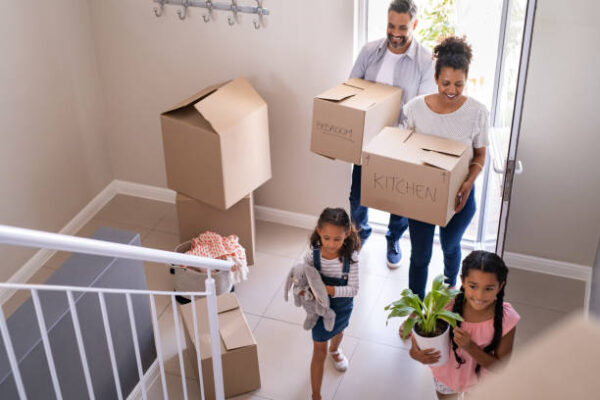Long Distance Moving Packages Starting @ $1899!
Packing Checklist For Moving Out Of State
Are you planning to move out of state? Whether it's just across the country or two states over, understanding how much stuff you are taking with you is key. That's why we've created this moving checklist for everything that needs to be packed and unpacked before hitting.
What Are The Most Essential Items That You Need To Pack For A Move Out Of State?
1. Moving boxes and packing materials. These will come in handy for packing up your things and keeping them organized during the move.
2. Furniture and appliances. If you're moving out of state, you'll probably need to take your furniture and appliances with you. Make sure to measure them beforehand so you know they'll fit in your new home.
3. Clothing and bedding. Don't forget to pack your clothes and bedding! You'll need them when you move into your new home.
4. Kitchen items. Make sure to pack all of your kitchen items, including dishes, silverware, and cookware.
5. Electronics. Don't forget your electronics! Pack up your computers, TVs, and other electronics so you can use them in your new home.
6. Important documents. Be sure to pack important documents, like your driver's license, passport, and birth certificate. You'll need them when you move into your new home.
7. Moving insurance. This is a good idea if you're moving long distances. Moving insurance will protect your belongings in case they're damaged during the move.
These are the most essential items you'll need for a move out of state. Be sure to pack them all before you leave so you can have a successful move.
How Much Money Should I Save To Move Out Of State?
There's no hard and fast rule for how much money you should save to move out of state. However, it's a good idea to have enough money saved up to cover the cost of moving expenses, such as renting a moving truck, hiring movers, and travel costs. It's also a good idea to have some extra money saved up for unexpected expenses that might come up during the move. By saving up a little bit of extra money, you can ensure that you have a successful and stress-free move.

What Do I Need To Do When Moving To A New State?
There are a few things you need to do when moving to a new state:
1. Update your driver's license and vehicle registration. You'll need to update these documents so you can drive in your new state.
2. Get a new home insurance policy. You'll need to insure your new home so you're protected in case of any accidents or damage.
3. Change your address with the post office. This way, your mail will be delivered to your new home.
4. Notify your bank and other financial institutions of your move. This way, you can continue to access your accounts and services from your new location.
5. Update your contact information with friends and family. Let them know your new address and phone number so they can reach you after the move.
By following these steps, you'll be prepared for a smooth transition to your new home state.

Is Moving To A New State Hard?
There's no easy answer to this question. Moving to a new state can be hard, but it can also be an exciting and rewarding experience. It all depends on your individual circumstances. If you're moving to a new state for a job or because you're getting married, then the move might be easier because you have a specific reason for moving.
What Should I Do 1 Week Before Moving Out Of State?
There are a few things you should do one week before moving out of state:
1. Make a list of all the people and businesses you need to notify about your move. This includes your bank, doctor, employer, etc.
2. Start packing up your belongings. Begin with items that you don't use often.
3. Arrange for transportation to your new home. This could include renting a moving truck or hiring movers.
4. Notify your utility companies about your move and schedule a time to have your utilities shut off at your current home and turned on at your new home.
5. Make sure you have all the necessary documents for your move, such as your driver's license and birth certificate.
By taking care of these things one week before moving out of state, you'll be prepared and organized for your big move.
Looking for Movers? Get A Quote!
What People Say About Us

“Long Distance Out of State Moving is the best interstate moving broker in the US.”
Tony Gonzalez
“Amazing service. 10/10 would recommend Long Distance Out of State Moving!!”
Eddy
“Between their honest recommendations, and affordable services, I don't know what to rate higher. 5 Stars!”
Jamen
Need Help With Your Long Distance Move? Contact Us Any Time
We will get back to you as soon as possible
Please try again later

Out of State Long Distance Moving, LLC, is not a motor carrier and will not transport an individual shipper's household goods, but will coordinate and arrange for the transportation of household goods by an FMCSA authorized motor carrier, whose charges will be determined by its published tariff. All estimated charges and final actual charges will be based upon the carrier's tariff which is available for inspection from the carrier upon reasonable request.

